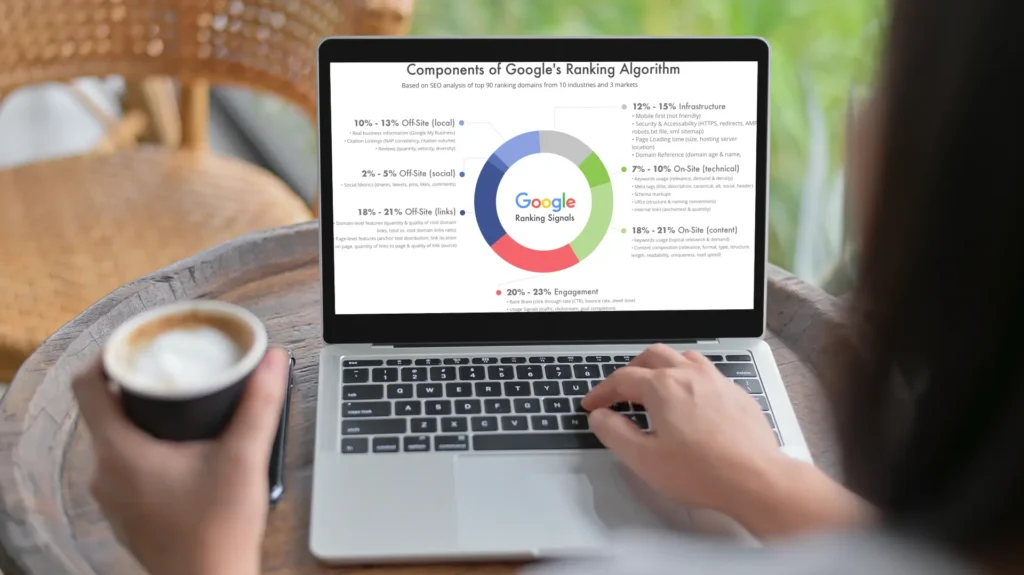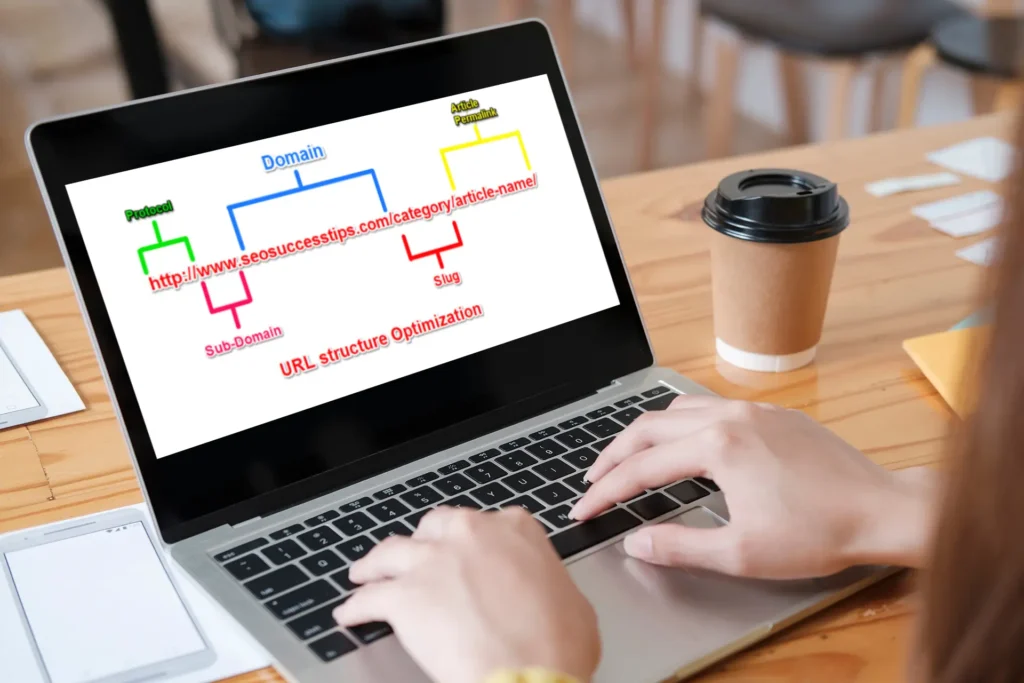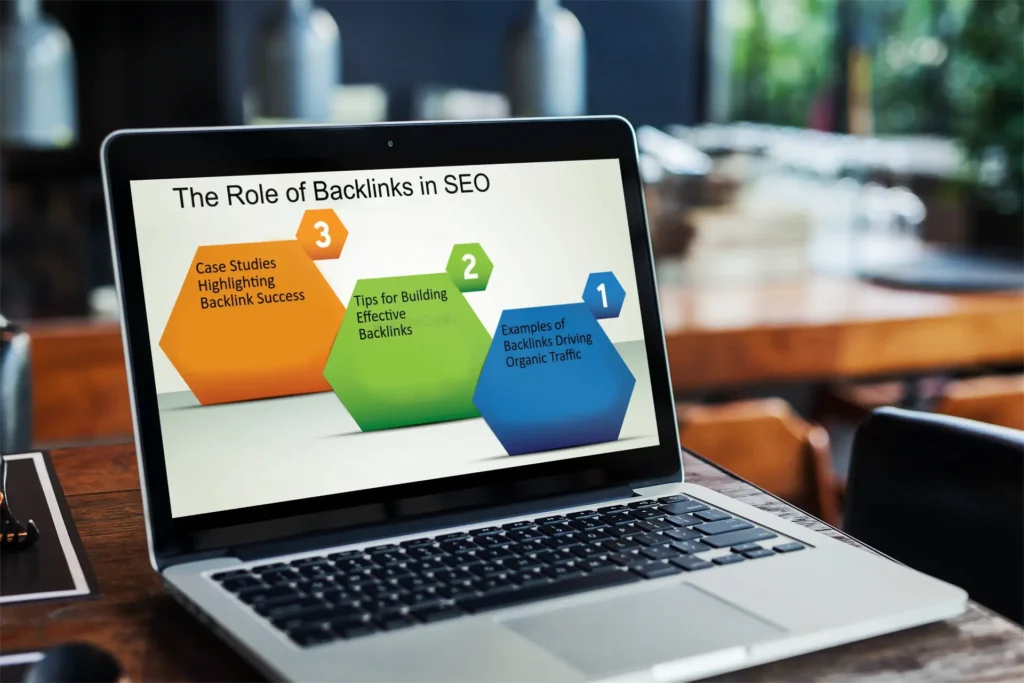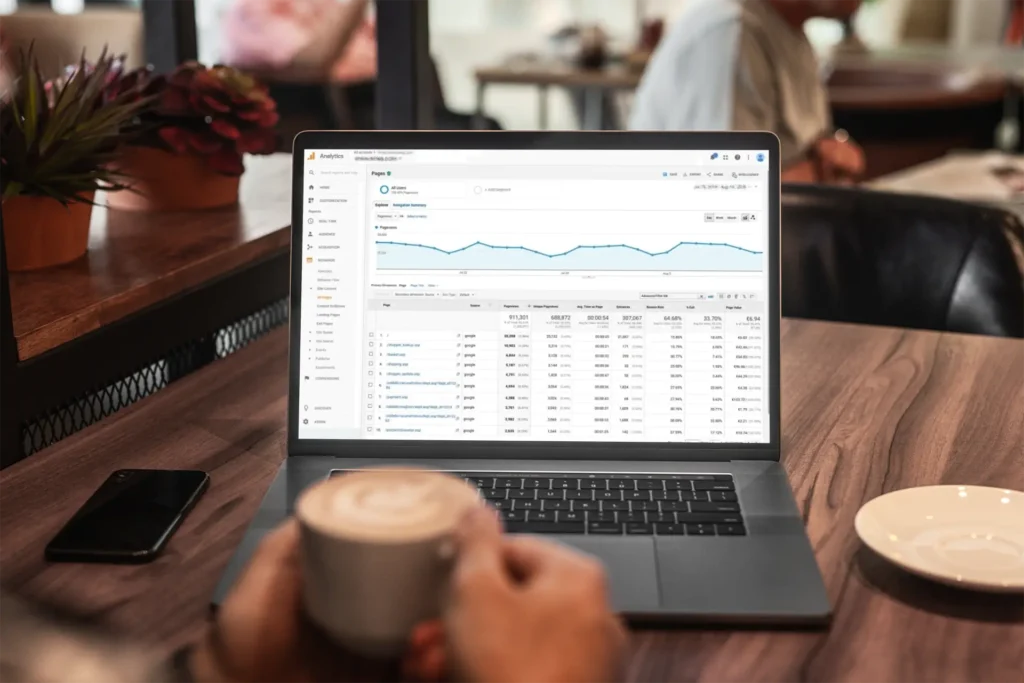Table of Contents
Welcome to the ultimate guide to mastering Google search engine optimization (SEO). In this guide, we’ll cover everything you need to know to improve your website’s visibility and drive more organic traffic through SEO best practices.
SEO is a crucial part of any online marketing strategy, and Google is the most popular search engine, with over 90% of all searches conducted through this platform. By optimizing your website for Google search engine optimization, you can attract more visitors to your website and stand out from your competition.
In this comprehensive guide, we will explore the fundamentals of SEO, on-page and off-page SEO techniques, the importance of keywords and optimized website content, the role of backlinks, the power of UX, continuous monitoring, and staying updated with the latest SEO trends.
Key Takeaways:
- Google search engine optimization is essential for improving your website’s visibility and driving more organic traffic.
- SEO best practices are crucial for achieving long-term success online.
- In this guide, we will cover the fundamentals of SEO, on-page and off-page SEO techniques, the importance of keywords and optimized website content, the role of backlinks, the power of UX, continuous monitoring, and staying updated with the latest SEO trends.
Understanding Search Engine Optimization

Before we jump into the specifics of Google search engine optimization, it’s crucial to comprehend the fundamentals of SEO. Website optimization is the key to successful SEO. It involves optimizing your site structure, content, and layout to improve the user experience and help search engines crawl and index your site effectively.
SEO best practices are constantly evolving, and it’s essential to stay updated with the latest trends and algorithm updates. You can start by optimizing your website for keywords relevant to your business or niche. Conducting thorough keyword research can help you identify high-volume, low-competition keywords that you can target for better search engine rankings.
Importance of Website Optimization

Website optimization plays a significant role in determining your website’s visibility in search engine rankings. The design, layout, and structure of your website can influence how search engines like Google crawl and index your site and whether or not they consider it relevant and authoritative. Some critical factors to consider when optimizing your website include:
- Site speed: Ensure that your website loads quickly and efficiently, as slow loading times can negatively affect user experience and search engine rankings.
- Mobile responsiveness: With more people using mobile devices to browse the internet, it’s crucial to make your website mobile-friendly to enhance the user experience and improve your mobile search rankings.
- Navigation structure: A clear and simple navigation structure can help users find what they’re looking for quickly and easily, leading to increased user engagement and better search engine rankings.
By optimizing your website for SEO best practices and user experience, you can increase your website’s visibility in search engine rankings and attract more organic traffic to your site.
On-Page SEO Techniques

On-page SEO refers to the optimization techniques used on your website to improve your Google rankings. By following on-page SEO best practices, you can enhance your website’s visibility and attract more organic traffic. Here, we will discuss the key on-page SEO techniques that can help boost your website’s performance.
Keyword Research

Keyword research is an essential part of on-page SEO. By identifying the right keywords for your target audience and incorporating them effectively into your website’s content, you can improve your Google rankings and attract more traffic to your website. Conduct thorough keyword research to understand what your audience is searching for and use those keywords throughout your website’s content.
Optimizing Meta Tags

Meta tags are HTML elements that provide search engines with information about your website’s content. By optimizing your meta tags, including your page title and meta description, you can improve your website’s visibility in search results. Use relevant keywords in your meta tags and ensure they accurately reflect the content on your website.
Improving Site Speed

Site speed plays a significant role in Google’s ranking algorithm. A slow-loading website can negatively impact user experience and your website’s visibility in search results. To improve your website’s speed, optimize your images and reduce the size of your files. Consider using a Content Delivery Network (CDN) to reduce server response time and improve website speed.
Creating High-Quality Content

Creating high-quality content is essential for driving organic traffic to your website. Invest time into researching and writing engaging and informative content that is relevant to your audience. Use relevant keywords throughout your content and ensure it is well-structured with headings and bullet points.
Implementing Proper URL Structures

Proper URL structures can improve your website’s visibility and user experience. Use descriptive URLs that accurately reflect the content on the page. Avoid using long, complex URLs, and instead, use simple, easy-to-read URLs that include relevant keywords.
Off-Page SEO Strategies

Off-page SEO refers to the techniques used outside of your website to enhance its authority and visibility. These strategies are crucial for improving your website’s Google rankings and attracting more organic traffic. Here are some effective off-page SEO practices:
Backlinking

Backlinks play a crucial role in off-page SEO. They are links from other websites that point to your website and indicate that your content is valuable and trustworthy. The more high-quality backlinks you have, the better your website’s authority and rankings will be. To build a strong backlink profile, you should:
- Guest blog on other websites to gain exposure and backlinks
- Reach out to industry influencers and ask them to link to your content
- Create engaging and shareable content that naturally attracts backlinks
Social Media Promotion

Social media is a powerful tool for driving traffic and generating backlinks to your website. By promoting your content on social media platforms, you can expand your reach and attract more visitors to your website. To maximize the impact of social media on your off-page SEO, you should:
- Create engaging and shareable social media posts that link back to your website
- Engage with your followers and respond to their comments and questions
- Collaborate with other brands and influencers on social media to expand your reach
Online Reputation Management

Your online reputation plays a crucial role in attracting visitors to your website. Positive reviews and feedback can significantly enhance your website’s authority and credibility, while negative reviews can hurt your reputation and lower your rankings. To manage your online reputation effectively, you should:
- Monitor your brand mentions and reviews on social media platforms and review websites
- Address negative reviews and feedback promptly and professionally
- Encourage satisfied customers to leave positive reviews and feedback on your website and review platforms
The Power of Keyword

One of the most important aspects of on-page SEO is keyword research. Proper keyword research can help you to understand what your target audience is looking for and create content that aligns with their queries. It can also help you to identify opportunities for increasing your website’s visibility in search results.
To start the process of keyword research, you can use tools such as Google Keyword Planner, SEMrush, or Moz Keyword Explorer. These tools provide valuable insights into search volume, competition, and related keywords that can be integrated into your content strategy.
When selecting keywords, it’s essential to choose those that align with your website’s content and target audience. Avoid using generic keywords that are too broad or competitive, as they may result in lower rankings and less qualified traffic. Instead, focus on long-tail keywords that are more specific and relevant to your content.
Once you have identified your target keywords, it’s important to integrate them effectively into your on-page SEO strategy. Key areas to include keywords are in your page titles, meta descriptions, header tags, and throughout your content. However, be sure to use keywords naturally and avoid keyword stuffing, as this can result in penalties from Google.
By conducting thorough keyword research and integrating relevant keywords strategically throughout your content, you can optimize your website for Google search engine optimization and attract high-quality organic traffic.
Optimizing Website Content

Optimizing your website’s content is crucial for improving its Google search engine optimization and attracting more organic traffic.
One of the most critical on-page SEO techniques is to conduct thorough keyword research to find the right keywords for your target audience. Incorporating these keywords effectively into your website’s content can significantly improve your search engine rankings.
The placement of keywords is essential. Ensure that your primary keywords are included in the title tag, meta description, header tags, and throughout the body of your content. However, avoid keyword stuffing, which can harm your website’s rankings. A keyword density of 1-2% is optimal.
Creating high-quality, engaging, and relevant content is also vital. Google’s algorithm prioritizes content that meets these criteria, and it can significantly impact your website’s rankings. Consider the user intent when developing your content, and ensure it is informative, readable, and helpful to your target audience.
Optimizing your website’s images and videos is also critical. Adding descriptive, keyword-rich captions, alt tags, and file names can improve your website’s visibility in Google’s image and video search results.
Overall, optimizing your website’s content should be an essential part of your SEO strategy. Incorporating on-page SEO best practices, relevant, high-quality content, and a focus on user intent can help improve your Google search engine optimization and drive more organic traffic to your website.
Maximizing User Experience

Aside from implementing on-page SEO techniques, optimizing your website’s user experience is another critical factor in improving your Google rankings.
One of the first things to consider is mobile responsiveness. With more and more people using mobile devices to browse the web, it’s essential to ensure that your website is optimized for mobile devices. This means ensuring that your website is easy to navigate, has a user-friendly interface, and loads quickly on mobile devices.
Site speed is also crucial in optimizing user experience. Websites that take too long to load can frustrate users and deter them from staying on your website. It’s crucial to optimize your website’s loading speed by compressing images, reducing server response time, and minimizing HTTP requests.
Navigation structure is another essential aspect of user experience. An organized and intuitive navigation structure makes it easy for users to find what they’re looking for on your website. This means using clear and concise menu items, categorizing content appropriately, and providing a search function for easy navigation.
Finally, having a user-friendly interface can make all the difference in optimizing your website’s user experience. This means using easy-to-read fonts, contrasting colors for text and background, clear and concise headings, and avoiding distracting pop-ups or ads that can detract from the user experience.
The Role of Backlinks

Backlinks are one of the most critical off-page SEO factors that play a vital role in determining your website’s online authority and rankings. In simple terms, a backlink is a link that another website includes on their page, directing users to your website.
The number and quality of backlinks that your website has significantly impact your search engine rankings. Search engines view backlinks as votes of confidence, indicating that your website is reputable and valuable to users.
However, not all backlinks are created equal. Low-quality or spammy backlinks can negatively impact your website’s online reputation, hurting your rankings. Therefore, it’s crucial to focus on building high-quality backlinks from authoritative sources.
So, how can you acquire high-quality backlinks? One strategy is to create valuable and relevant content on your website that naturally attracts links from other domains. Additionally, you can reach out to other websites in your niche and offer to contribute guest posts or collaborate on content.
Building a strong backlink profile takes time and effort, but it’s worth the investment in the long run. By implementing effective off-page SEO strategies and focusing on building high-quality backlinks, you can improve your website’s online authority and visibility.
Continuous Monitoring and Optimization

Continuous monitoring and optimization are essential for maintaining and improving your website’s performance in Google search engine optimization (SEO). Effective monitoring involves tracking your website’s performance, analyzing SEO metrics, and staying updated with the latest trends and changes in the industry.
The Importance of Monitoring SEO Metrics

Monitoring SEO metrics allows you to track the progress of your SEO efforts and make data-driven decisions for optimization. By monitoring your website’s performance, you can identify areas that need improvement, track the effectiveness of your SEO strategies, and adjust your tactics accordingly.
Some essential SEO metrics to monitor include website traffic, keyword rankings, bounce rates, backlink profiles, and conversion rates. By tracking these metrics regularly, you can gain insights into your website’s performance and make informed decisions for optimization.
Tools for Monitoring SEO Metrics

There are many tools available online that can help you monitor your SEO metrics, such as Google Analytics, Ahrefs, SEMrush, and Moz. Google Analytics is an excellent free tool that provides in-depth insights into your website’s traffic, user behavior, and conversions.
Other tools like Ahrefs, SEMrush, and Moz offer more advanced features like competitor analysis, backlink tracking, and keyword research. These tools can help you identify areas of improvement, track your progress, and stay ahead of your competitors in the search rankings.
Optimizing for Continuous Improvement

Continuous optimization involves analyzing your website’s performance, identifying areas of improvement, and implementing changes to enhance your SEO efforts. By continuously optimizing your website, you can stay ahead of the competition, improve your search rankings, and attract more organic traffic.
Some effective optimization techniques include updating your website’s content regularly, monitoring and improving site speed, building high-quality backlinks, and implementing proper URL structures. By implementing these best practices and keeping up with the latest SEO trends, you can achieve long-term success in Google search engine optimization.
Staying Updated with SEO Trends

As we’ve mentioned throughout this guide, SEO is an ever-evolving field, and it’s essential to stay up-to-date with the latest trends and algorithm changes to maintain your website’s visibility and rankings. Google’s algorithms are constantly changing, and what worked yesterday may not work tomorrow.
One of the best ways to stay updated is to follow industry experts and thought leaders. There are many credible sources of information, including blogs, podcasts, forums, and social media channels. These experts can provide valuable insights and strategies, as well as news and updates on the latest algorithm changes.
It’s also important to continuously monitor your website’s performance and make data-driven optimization decisions. This includes tracking SEO metrics, monitoring keyword rankings, analyzing website traffic, and identifying areas for improvement.
By staying updated with SEO trends and continuously optimizing your website, you can ensure that your website remains visible and competitive in organic search results.
Conclusion
In today’s digital age, mastering Google search engine optimization is crucial for any website to achieve success online. By implementing the SEO strategies and best practices discussed in this friendly guide, you can improve your website’s visibility, attract more organic traffic, and enhance your Google rankings.
Remember, SEO is an ongoing process that requires continuous monitoring and optimization. Use the tools and techniques discussed in this guide to track your website’s performance, analyze SEO metrics, and make data-driven decisions to improve your website’s visibility.
Stay informed about the latest SEO trends and algorithm updates to adapt your strategies accordingly. Following industry experts and keeping up-to-date with the latest SEO news can help you stay ahead of the competition and maximize your website’s potential.
In conclusion, mastering Google search engine optimization is essential for improving your website’s visibility, attracting more organic traffic, and enhancing your Google rankings. By implementing the strategies and best practices discussed in this guide, you can unlock the power of SEO and achieve long-term success online.
FAQ
What is Google search engine optimization (SEO)?
Google search engine optimization (SEO) is the practice of optimizing your website to improve its visibility in organic (non-paid) search engine results. By following SEO best practices, you can increase your website’s ranking on Google and attract more organic traffic.
Why is search engine optimization important?
Search engine optimization is important because it helps your website appear higher in search engine results, driving more traffic to your site. By optimizing your website’s content and structure, you can increase its visibility and attract a larger audience.
What are the factors that influence search engine rankings?
Several factors influence search engine rankings, including website content, keyword usage, site speed, mobile-friendliness, backlinks, user experience, and more. It’s important to focus on all these aspects to improve your website’s ranking on Google.
How can I improve my website’s visibility on Google?
To improve your website’s visibility on Google, you can implement various strategies like keyword research and optimization, creating high-quality content, optimizing meta tags, improving site speed, building quality backlinks, and ensuring a positive user experience.
What is on-page SEO?
On-page SEO refers to the optimization techniques applied directly on your website to improve its visibility on Google. This includes optimizing meta tags, headers, URLs, content, and internal linking structure to make your web pages more search engine-friendly.
What is off-page SEO?
Off-page SEO refers to the optimization techniques applied outside of your website to improve its visibility on Google. This includes building high-quality backlinks from other websites, social media promotion, guest blogging, and managing your online reputation.
How do keywords impact SEO?
Keywords play a critical role in SEO as they help search engines understand the relevance of your content to users’ search queries. By conducting keyword research and incorporating relevant keywords in your content, you can improve your website’s ranking on Google.
What is user experience (UX) and how does it affect SEO?
User experience (UX) refers to the overall experience users have when interacting with your website. Positive UX signals, such as mobile responsiveness, fast page load times, easy navigation, and a user-friendly interface, can enhance your website’s SEO performance.
How important are backlinks for SEO?
Backlinks are crucial for SEO as they act as “votes of confidence” from other websites, indicating that your content is valuable and trustworthy. By earning high-quality backlinks, you can improve your website’s authority and increase its chances of ranking higher on Google.
How often should I monitor and optimize my website’s SEO?
SEO requires continuous monitoring and optimization to ensure your website’s performance. It’s recommended to regularly track SEO metrics, analyze keyword rankings, and monitor website traffic to identify areas for improvement and make data-driven optimization decisions.
How can I stay updated with the latest SEO trends?
To stay updated with the latest SEO trends, you can follow industry experts, subscribe to reputable SEO blogs and newsletters, attend webinars and conferences, and join online communities where professionals discuss SEO strategies and share insights.


